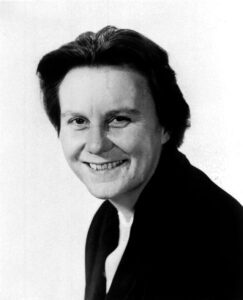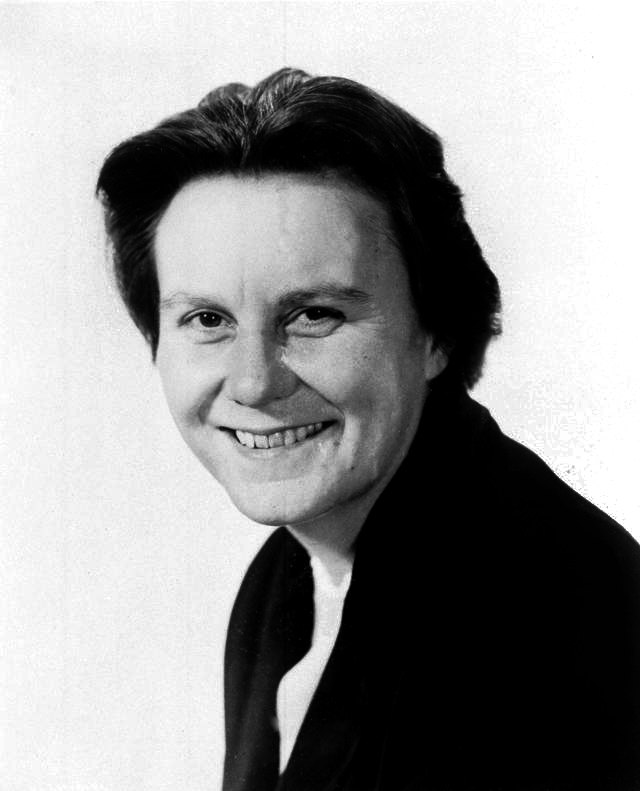Harper Lee, born Nelle Harper Lee on April 28, 1926, in Monroeville, Alabama, was an American author renowned for her iconic novel “To Kill a Mockingbird.” With her masterful storytelling and compassionate exploration of themes such as racial injustice and the loss of innocence, Lee left an indelible mark on American literature. This biography delves into the life and literary journey of Harper Lee, tracing her path from a small-town upbringing to becoming one of the most celebrated and influential authors of the 20th century.
Growing up in the Deep South, Lee’s childhood was deeply rooted in the racially divided landscape of Alabama during the 1930s. Her father, Amasa Coleman Lee, was a lawyer and newspaper editor who would later serve as the inspiration for the character of Atticus Finch in “To Kill a Mockingbird.” Lee’s mother, Frances Cunningham Finch Lee, was a homemaker who instilled in her daughter a love of literature and the importance of education.
Lee’s passion for writing was evident from an early age. While attending the all-female Huntingdon College in Montgomery, Alabama, she contributed to the college’s literary magazine and honed her storytelling skills. After spending a year at Huntingdon, Lee transferred to the University of Alabama, where she studied law. However, her true calling as a writer beckoned, and she eventually dropped out of law school to pursue her literary aspirations in New York City.
In New York, Lee worked as an airline reservation clerk while focusing on her writing in her spare time. It was during this period that she formed a close friendship with fellow writer Truman Capote. This friendship would prove influential in Lee’s own literary journey and would later serve as the inspiration for the character Dill in “To Kill a Mockingbird.”
In 1960, Lee published her debut novel, “To Kill a Mockingbird,” which would go on to become a literary sensation. Set in the fictional town of Maycomb, Alabama, during the 1930s, the novel explores themes of racial injustice, moral courage, and the loss of childhood innocence through the eyes of Scout Finch, a young girl growing up in a racially divided society. “To Kill a Mockingbird” was an instant critical and commercial success, winning the Pulitzer Prize for Fiction in 1961 and solidifying Lee’s place as a literary luminary.
Lee’s portrayal of the character Atticus Finch, a principled lawyer who defends a black man falsely accused of rape, struck a chord with readers around the world. Atticus Finch became an enduring symbol of moral integrity and justice, and the novel itself became a touchstone in the fight against racial discrimination. “To Kill a Mockingbird” continues to be taught in schools and cherished by readers of all ages for its timeless messages of empathy and standing up for what is right.
Following the enormous success of “To Kill a Mockingbird,” Lee retreated from the public eye. She shied away from interviews and the spotlight, preferring to live a private and quiet life in Monroeville, Alabama. Despite the overwhelming pressure to produce another novel, Lee chose to focus on her personal life and her friendships, and she remained largely unpublished for the remainder of her life.
Decades later, in 2015, a second novel by Harper Lee was published. Titled “Go Set a Watchman,” the novel was initially written before “To Kill a Mockingbird” but was set aside and presumed lost until it was rediscovered in Lee’s belongings. “Go Set a Watchman” serves as both a prequel and a sequel to Lee’s iconic novel, revisiting the character of Scout Finch as an adult and delving into the complexities of race, family, and personal identity. While the publication of “Go Set a Watchman” generated mixed reviews, it provided a deeper understanding of Lee’s creative process and offered readers further insight into her literary vision.

Harper Lee‘s impact on American literature is immeasurable. Her courageous exploration of social issues, her ability to create vivid and relatable characters, and her compelling storytelling continue to resonate with readers across generations. Lee’s legacy as a trailblazer of moral conscience remains as powerful today as it was when “To Kill a Mockingbird” first graced the literary landscape. Through her words, she challenged societal norms, exposed the harsh realities of racial prejudice, and inspired readers to confront injustice with empathy and courage. Harper Lee will forever be remembered as a literary pioneer and a voice of moral clarity in the face of adversity.










